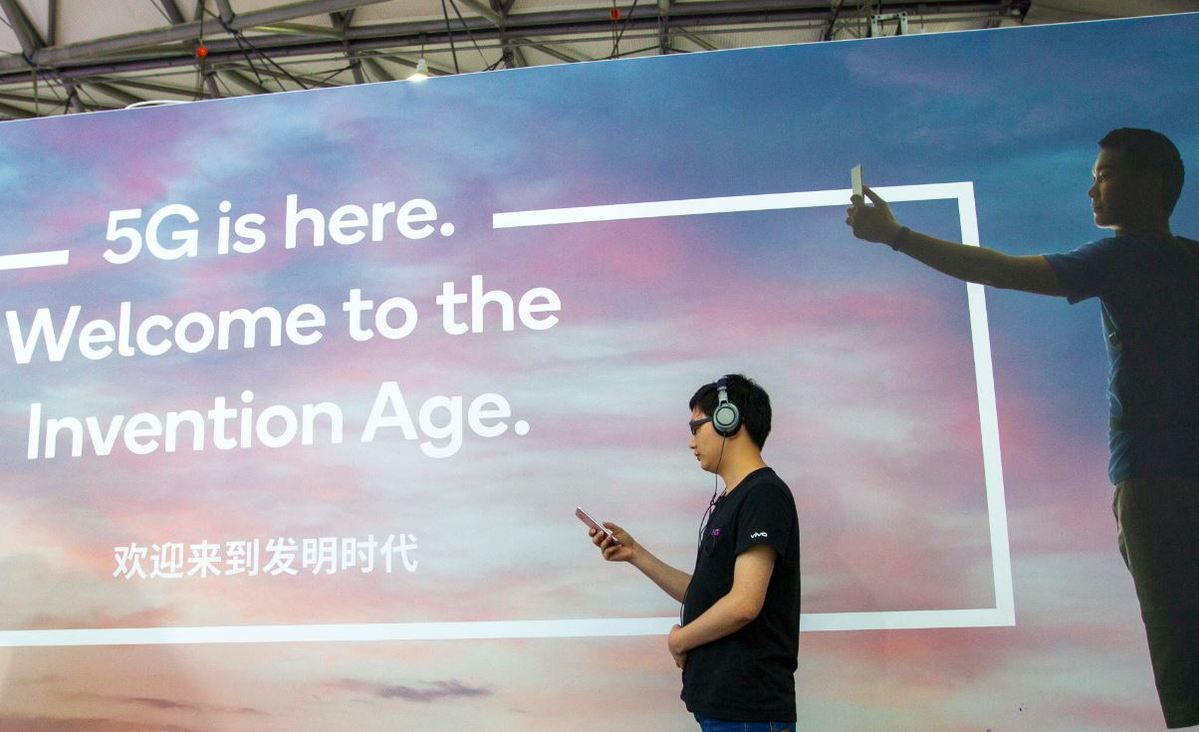Signal is clear, 5G is here
By Ma Si | China Daily | Updated: 2019-09-16 09:16
According to him, one of the biggest contributions of China's telecom industry is that it laid down a sound digital infrastructure for companies and consumers to access fast internet networks at affordable prices. They laid the foundation for China's kaleidoscope of mobile applications and thriving digital economy.
Leveraging these achievements, the country's telecom carriers are scrambling to establish a beachhead in the 5G era, in which almost everything can be connected to the internet.
As at the end of May, Chinese companies accounted for more than 30 percent of all patents essential to the global standards for 5G. After the country granted the commercial 5G licenses in June, local telecom carriers are working to build a sound network infrastructure to accelerate the technology's commercialization.
Yang Jie, chairman of China Mobile, the world's largest mobile operator, said the company plans to cover 50 cities across China with 5G signals by the end of this year.
"That will involve deploying 50,000 5G base stations across the country," Yang said, adding that the company has already raised 7 billion yuan as the first phase of a 5G fund to promote the development of key technologies. The planned total size of the fund is 30 billion yuan.
Similarly, China Unicom said it will cover at least 40 cities with 5G signals by the end of this year and work together with all industry partners, including foreign companies, to accelerate 5G infrastructure construction.

Just a day after securing its 5G license, China Unicom announced it had opened experience stores across 40 cities to encourage consumers to try applications powered by the superfast technology.
Visitors can play with mechanical robotic arms, watch 4K high-definition live-streaming, wear virtual reality goggles to play 3-D games and learn that with 5G, doctors can complete surgeries on patients 2,500 kilometers away.
Lyu Tingjie, a telecom professor at the Beijing University of Posts and Telecommunications, said: "After all the hype about 5G, the new era has finally started. All the state-of-the-art applications are getting closer to the public than ever. The next question is: How to better time the rollout and partner with a wide range of traditional sectors to boost efficiency?"
The country's telecom carriers are expected to spend 900 billion yuan to 1.5 trillion yuan on 5G network construction from 2020 to 2025, according to a report from the China Academy of Information and Communications Technology.
The first batch of 5G smartphones hit the market in August. China Unicom said its 5G data packages will cost a minimum of 190 yuan, arguably the world's lowest price, in its first stage of application.
In comparison, the minimum cost in South Korea's 5G data packages is about 325 yuan per month, while US telecom operator AT&T charges users $70 (equivalent to 498 yuan) for 15-gigabytes of 5G data every 30 days.
Meanwhile, Chinese telecom equipment makers are securing a growing number of 5G contracts to supply foreign telecom carriers. Huawei said it had signed 50 commercial contracts for 5G with carriers worldwide, with 28 contracts from Europe, 11 from the Middle East, six from the Asia-Pacific region, four from the Americas, and one from Africa.
William Xu, a director on Huawei's board and president of the Institute of Strategic Research, said the company has had more than 200,000 5G base stations in shipment, which marked a steady step forward, compared with its earlier announcement of 150,000 base stations in late June.
Huawei has invested about $4 billion in all so far in the research and development of 5G since 2009.Founder and CEO Ren Zhengfei has said in an interview that other players will not be able to catch up with Huawei in 5G over the next two to three years.
According to a forecast by the Global System for Mobile Communications Association, an industry group, China is set to become the world's largest 5G market by 2025, with 460 million 5G users.
























